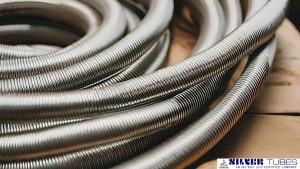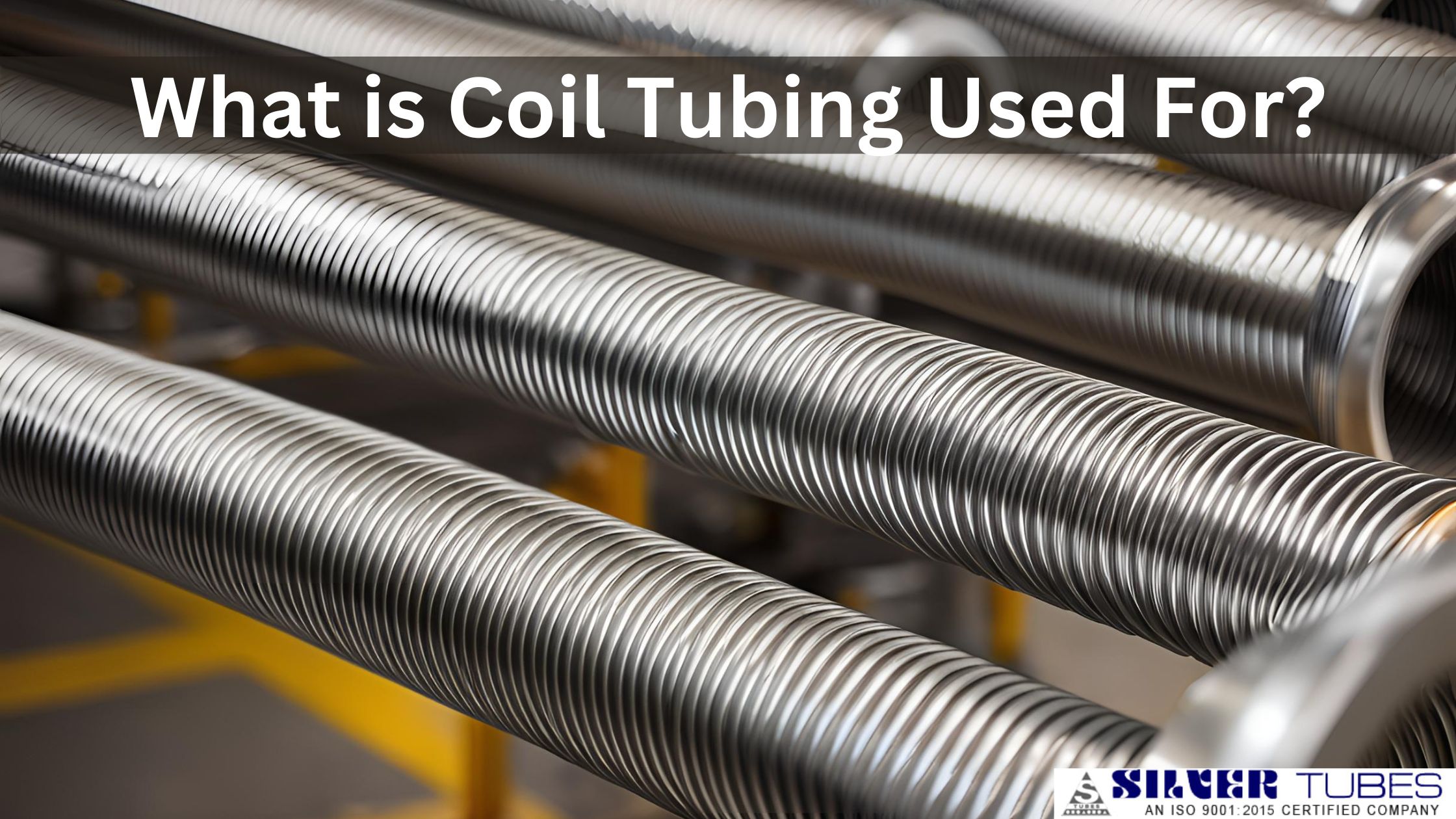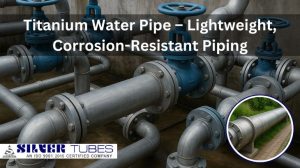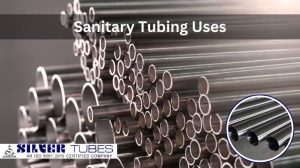Coil tubing is a versatile and essential component in many industries, from oil and gas exploration to medical equipment manufacturing. It consists of a long, continuous tube wound in a coil, offering unique advantages in various applications where flexible and durable tubing is required. In this blog, we’ll explore the uses of coil tubing, particularly focusing on stainless steel coiled tubes, and examine its diverse applications in different sectors.

What is Coil Tubing?
Coil tubing refers to long, flexible tubes that are manufactured without joints or seams and wound in a coil. The continuous nature of coil tubing eliminates the need for multiple fittings, which minimizes the risk of leaks and allows for smoother fluid or gas flow. Coil tubing can be made from various materials such as stainless steel, copper, and even polymers, but stainless steel coiled tubes are particularly valued for their durability, corrosion resistance, and high-temperature tolerance.
Applications of Coil Tubing
Oil and Gas Industry
One of the most well-known uses of coil tubing is in the oil and gas industry, particularly for well intervention and maintenance. Coil tubing offers flexibility and efficiency in downhole operations, where it can be inserted into wells without having to stop production.
Stainless steel coiled tubes are frequently used in these applications because they can withstand the harsh environments typically found in oil and gas wells. These tubes are resistant to corrosion from high-salinity fluids and can handle the extreme pressures and temperatures encountered deep underground.
Some common uses of coil tubing in this sector include:
- Well cleaning: Coil tubing is often used to remove blockages like sand, scale, and other debris from production wells.
- Drilling operations: In some cases, coil tubing is employed in underbalanced drilling operations where conventional drill pipes are too rigid or cumbersome.
- Well stimulation: It is also used to deliver chemicals to enhance the flow of oil or gas, such as in acidizing or hydraulic fracturing.
Heat Exchangers and HVAC Systems
Coil tubing plays a critical role in heat exchange systems due to its large surface area and continuous flow capability. In stainless steel coiled tube heat exchangers, the high thermal conductivity and corrosion resistance of stainless steel allow the efficient transfer of heat between fluids.
These tubes are used in HVAC systems, refrigeration, and other cooling applications to carry refrigerants or fluids that need to maintain temperature regulation. The continuous coil design ensures that the system operates efficiently with minimal pressure drops, while the use of stainless steel ensures long-lasting durability, even in corrosive environments.
Chemical Processing and Transfer Systems
Coil tubing is widely used in chemical industries for transferring aggressive chemicals or in situations where cleanliness and purity are critical. The chemical resistance and smooth interior surface of stainless steel coiled tubes make them ideal for transporting fluids or gases in sensitive environments. Additionally, they are often used in high-pressure systems where reliability and leak prevention are paramount.
In chemical processing plants, coil tubing can be found in applications such as:
- Fluid transfer systems: Moving chemicals between different parts of a facility.
- Sampling lines: Delivering accurate samples of fluids or gases for testing.
- Heat exchangers: Used in the heating or cooling of chemical reactions.
Medical and Pharmaceutical Applications
The medical and pharmaceutical industries often require high-precision, corrosion-resistant tubing for various applications. Stainless steel coiled tubes are used in medical devices such as catheters, endoscopes, and surgical instruments. These tubes must meet stringent cleanliness and safety standards, making stainless steel an ideal material for such sensitive applications.
In pharmaceutical production, these coiled tubes are used in:
- Sterilization equipment: Carrying high-temperature steam or gases.
- Fluid dispensing systems: Transferring high-purity fluids for drug manufacturing.
- Laboratory equipment: Ensuring sterile and corrosion-free environments during research and testing.
Automotive and Aerospace Applications
In the automotive and aerospace sectors, coil tubing is used in fuel and hydraulic systems where durability, weight reduction, and corrosion resistance are critical. Stainless steel coiled tubes offer the ability to withstand high pressures and temperature fluctuations, which are common in these environments.
- Hydraulic systems: Coil tubing is often used in hydraulic systems where space is limited, and fluid pressure must be maintained consistently.
- Fuel lines: Coiled tubing is used in high-pressure fuel systems, especially in aircraft, where weight-saving and efficiency are paramount.
Instrumentation and Control Systems
Coil tubing is also essential in instrumentation and control systems, particularly in industries such as oil refining, petrochemical plants, and manufacturing. Stainless steel coiled tubes are used for carrying fluids or gases to measurement devices, providing accurate pressure, temperature, or flow readings.
Because stainless steel offers resistance to corrosion, it is a preferred material in instrumentation tubing where precise readings are critical, and contamination or leaks must be avoided. Applications include:
- Pressure gauges: For monitoring fluid or gas pressure in pipelines.
- Flow meters: Delivering accurate flow rate data in manufacturing processes.
- Temperature sensors: Ensuring consistent and accurate temperature control in industrial systems.
Power Generation
In power generation, particularly in nuclear and thermal plants, stainless steel coiled tubes are used for heat exchangers and steam generation. The high resistance of stainless steel to temperature extremes and corrosion makes it ideal for use in steam systems and turbines where fluids are heated and cooled under high pressure.
Why Use Stainless Steel Coiled Tubes?
The advantages of using stainless steel coiled tubes across industries are clear. Stainless steel provides:
- Corrosion resistance: Essential in harsh environments like oil wells or chemical plants.
- High strength and durability: Able to withstand high pressures and extreme temperatures.
- Smooth interior surface: Reduces friction and promotes efficient fluid or gas flow.
- Flexibility and long lengths: Reduces the need for fittings and connections, minimizing potential leakage points.
Conclusion
Coil tubing is an incredibly versatile solution used across a wide range of industries, from oil and gas to medical devices. The specific use of stainless steel coiled tubes enhances these applications by providing superior corrosion resistance, strength, and flexibility. Whether it’s in the depths of an oil well or within the precision environment of a pharmaceutical lab, coil tubing plays an essential role in ensuring efficiency, safety, and performance.
Understanding the different applications of coil tubing helps us appreciate its value in modern engineering and industrial processes. If you’re working in a field where durability, flexibility, and precision are critical, consider incorporating stainless steel coiled tubes into your systems for enhanced reliability and performance.






